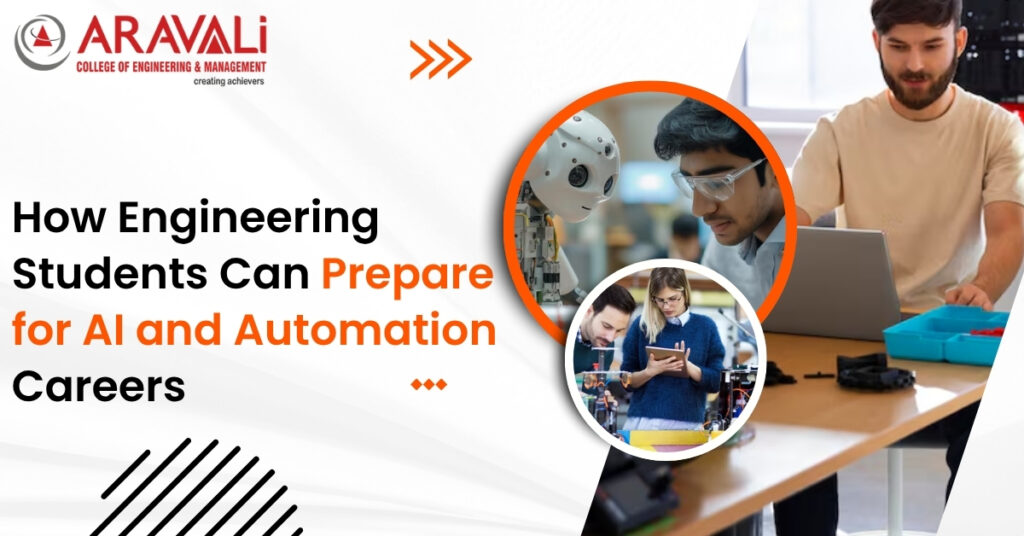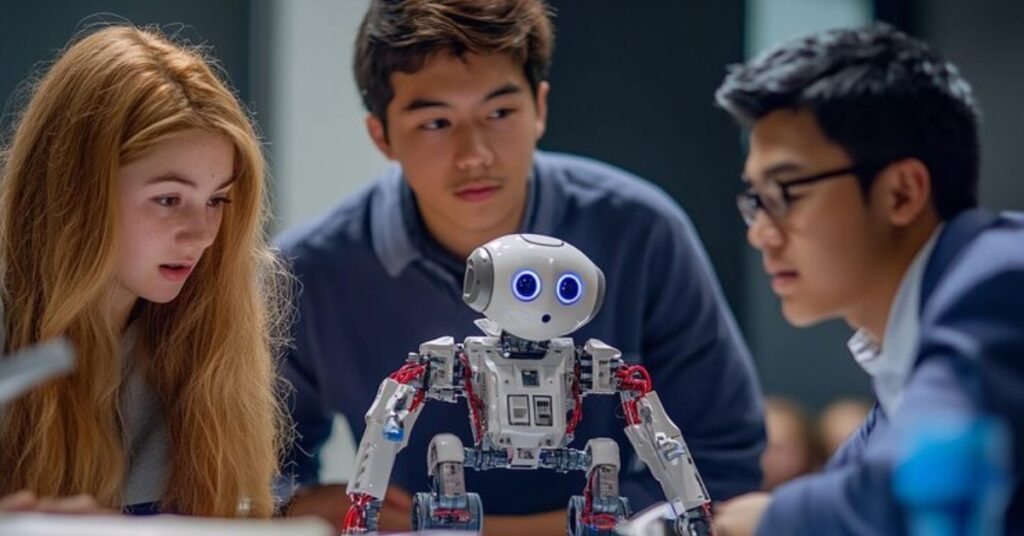
Artificial Intelligence (AI) and automation are reshaping the future of every industry. From manufacturing to healthcare, finance to logistics, AI-powered systems and automated solutions are driving efficiency, innovation, and productivity. For engineering students, this transformation opens a world of opportunities. However, to succeed in these fast-evolving fields, students must develop the right technical knowledge, analytical skills, and industry awareness. Preparing early for AI and automation careers can give engineering graduates a competitive advantage in the global job market.
The Rising Importance of AI and Automation
AI and automation are no longer futuristic concepts; they are an integral part of modern technology ecosystems. AI enables machines to learn and make intelligent decisions, while automation helps businesses streamline repetitive processes and enhance accuracy. Together, they are revolutionizing industries such as automotive, IT, robotics, and even agriculture. As organizations increasingly adopt these technologies, the demand for skilled engineers with AI expertise continues to rise. According to a recent report by the World Economic Forum, AI and automation will create millions of new roles globally, emphasizing the need for well-trained professionals.
Building a Strong Foundation in Programming
For engineering students, programming is the first essential skill to master when preparing for AI-driven careers. Languages like Python, C++, R, and Java are widely used in machine learning and automation projects. Python, in particular, is favored for its simplicity and extensive libraries such as TensorFlow, Keras, and PyTorch. A strong grasp of programming enables students to design algorithms, develop models, and solve complex computational problems. Regular coding practice through online platforms like HackerRank, LeetCode, or Codeforces helps improve logical thinking and efficiency.
Strengthening Mathematical and Analytical Skills
AI and automation rely heavily on mathematics and data interpretation. Core concepts such as linear algebra, calculus, probability, and statistics form the foundation for understanding how AI models work. Engineering students should focus on developing their analytical reasoning to interpret data and recognize patterns. These mathematical skills are crucial when building machine learning models or designing automated control systems. Courses or workshops that cover applied mathematics for AI can help students gain a deeper conceptual understanding.

Learning Key AI and Automation Tools
To excel in AI and automation, students must become familiar with industry-relevant tools and technologies. Learning frameworks like TensorFlow, PyTorch, and Scikit-learn for machine learning, and OpenCV for computer vision, is vital. For automation, tools like UiPath, Blue Prism, and Automation Anywhere are in high demand. Cloud platforms such as AWS, Microsoft Azure, and Google Cloud also offer AI and automation services that students can explore. Gaining practical experience with these tools helps students understand real-world AI applications and prepares them for industry projects.
Gaining Practical Experience Through Projects and Internships
Theoretical knowledge alone is not enough in the world of AI and automation. Employers seek engineers who can apply their learning to real-world challenges. Engineering students should work on hands-on projects, such as developing chatbots, automating data collection systems, or building predictive models. Participating in research projects, hackathons, and internships provides valuable industry exposure. Internships with technology companies help students gain practical insights into how AI and automation are applied in real business contexts, enhancing both technical expertise and professional readiness.
Understanding Data Science and Big Data Analytics
AI thrives on data. The ability to collect, analyze, and interpret data effectively is an essential skill for any AI engineer. Engineering students should learn tools like Tableau, Power BI, and Excel for data visualization, and explore databases such as MySQL and MongoDB. Knowledge of big data technologies like Hadoop and Spark can further enhance their capabilities. Data science certifications or online courses can provide additional expertise in managing complex data systems and deriving meaningful insights.
Developing Problem-Solving and Creative Thinking Skills
AI and automation require not just technical skills but also innovative problem-solving abilities. Engineers must be able to identify problems, analyze them critically, and create intelligent solutions using technology. Participating in coding competitions, robotics challenges, and AI research forums helps develop creativity and analytical reasoning. A mindset of experimentation and innovation allows students to stay adaptable in a constantly evolving field.
Keeping Up with Emerging Trends
The fields of AI and automation evolve rapidly. Students must stay updated on emerging trends such as generative AI, natural language processing, robotics, and edge computing. Reading research papers, following technology blogs, and attending webinars or conferences can help students stay informed about the latest advancements. Engaging with AI communities on platforms like GitHub or LinkedIn allows students to connect with professionals and gain real-world perspectives.
Building Soft Skills for Career Growth
While technical expertise is critical, soft skills play an equally important role in AI and automation careers. Communication, teamwork, and adaptability are essential when collaborating on interdisciplinary projects. Engineers must be able to explain complex AI concepts to non-technical stakeholders and work effectively within diverse teams. Leadership, time management, and project coordination skills also help professionals take on senior or managerial roles in technology-driven organizations.

Pursuing Higher Education and Certifications
Engineering students who wish to specialize in AI and automation can pursue advanced degrees such as M.Tech in Artificial Intelligence or MBA in Technology Management. Additionally, professional certifications from platforms like Coursera, edX, and Udacity validate an individual’s expertise and enhance employability. Certifications in AI, machine learning, RPA, or cloud computing are highly valued by employers and can significantly boost a student’s career prospects.
Career Opportunities in AI and Automation
The AI and automation sectors offer diverse career opportunities for engineering graduates. Popular job roles include AI Engineer, Data Scientist, Machine Learning Engineer, Automation Developer, Robotics Engineer, and Business Intelligence Analyst. These roles are not only high-paying but also highly impactful, offering opportunities to work on cutting-edge innovations that transform industries. From designing autonomous vehicles to developing intelligent healthcare solutions, the scope is limitless for engineers who possess AI and automation expertise.
Conclusion
AI and automation are redefining the future of engineering, creating exciting opportunities for skilled and forward-thinking professionals. To succeed, engineering students must invest in developing programming knowledge, mathematical understanding, and hands-on project experience. Staying curious, innovative, and adaptable will help them thrive in an AI-driven world. Institutions like Aravali College of Engineering and Management play a vital role in equipping students with industry-relevant skills, technical proficiency, and career guidance, preparing them to lead the next generation of AI and automation innovations.